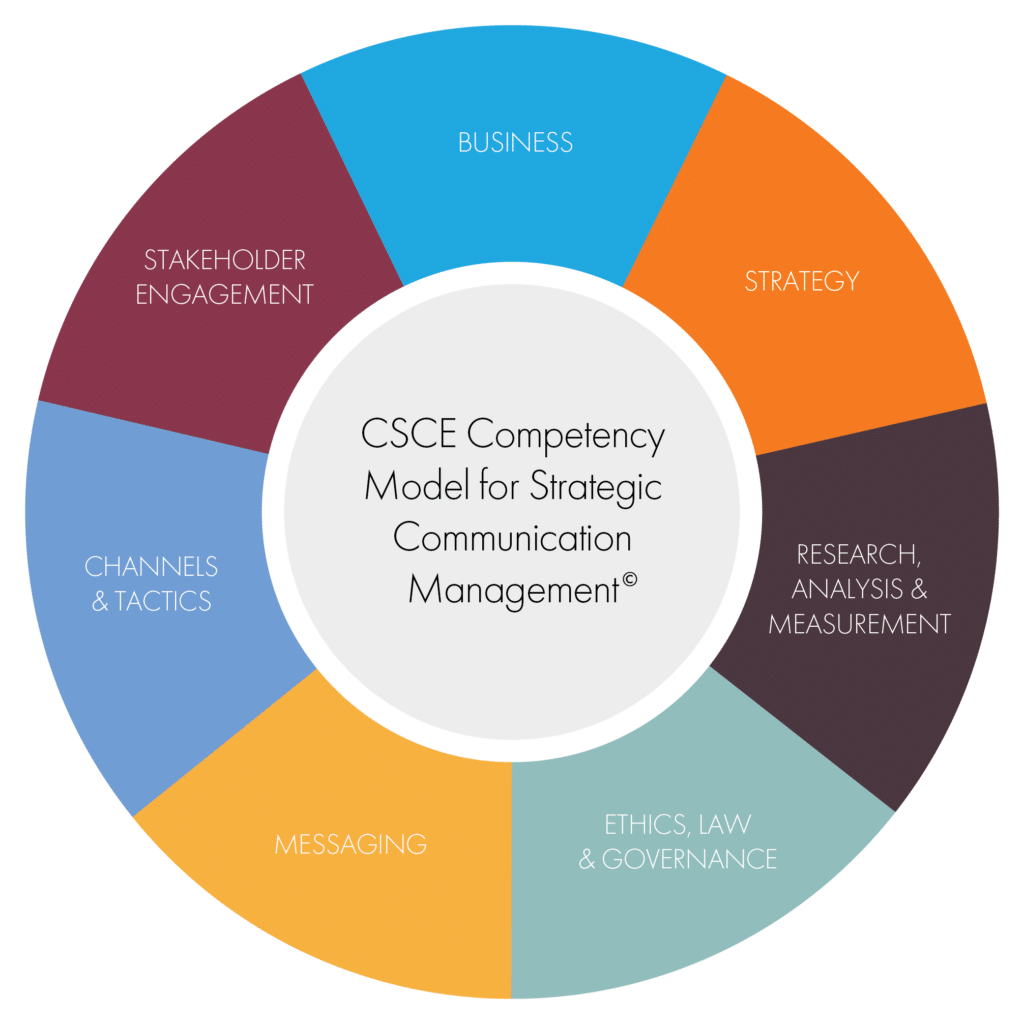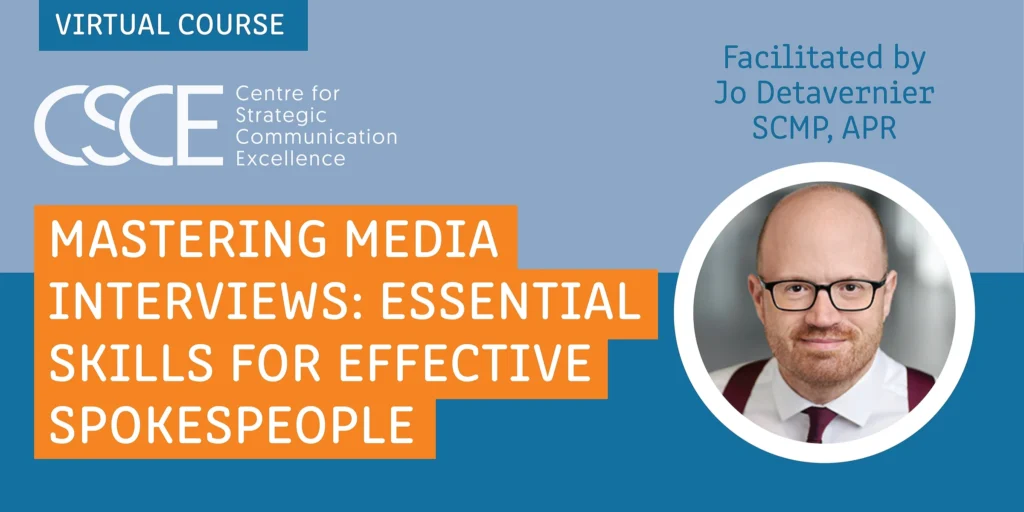Competency Model
The CSCE Competency Model for Strategic Communication Management provides a framework for the core competencies required as a communication professional.
The depth and mix of skills depends on the individual career path of each professional. Specialist skills are offered in addition to those defined in the model and as part of your career development plan, which may include emerging disciplines within the profession.
The competencies are based on years of research and global best practices, including the Global Standard of the Profession, the Career Roadmap, Global Alliance competency work, the UK Government Communication Competency Framework and our knowledge and expertise in strategic communication management, which includes a holistic, integrated view across internal and external communication.

Business
Communication professionals are expected to understand and analyse the organisational operating environment against the communication challenges and opportunities. To do so they must demonstrate effectiveness in:
- Understanding business functions in alignment with organisational priorities and audience needs and preferences
- Developing strategic communication approaches that are aligned with the strategic direction and business needs
- Developing and implementing an operational budget
- Managing the relationship between other functions that intersect or impact communication strategies and plans
- Identifying and acting on communication opportunities and challenges resulting from business change
- Providing communication advice on a range of business issues such as market fluctuations, union negotiations, environmental and sustainability concerns, reputation and crisis management
Strategy
Communication professionals apply strategic thinking and interpret business needs as part of their communication strategy, to deliver meaningful results. To do so they must demonstrate effectiveness in:
- Identifying and understanding communication challenges and opportunities within the organisation and the external marketplace
- Practicing effective communication based on approaches that demonstrate results (best practice)
- Managing the strategic communication process from start to finish
- Delivering relevant and targeted communication aligned with business and audience needs
- Using research and measurement to inform strategy and evaluate the effect of communication on the organisation and its stakeholders
Research, Analysis and Measurement
Communication professionals proactively use research to inform and refine their practices and measure the outcome of their strategies. To do so they must demonstrate effectiveness in:
- Using primary and secondary research to inform the strategic approach to communication plans
- Using benchmark data to define meaningful, measurable objectives that produce business outputs and outcomes
- Measuring the impact of communication activities on organisation priorities
- Understanding quantitative, qualitative and observational research methods
- Analysing and using research results to improve practices
Ethics, Law and Governance
Communication professionals are expected to adopt the highest standards of professional behavior demonstrating effectiveness in:
- Communicating with sensitivity to cultural values and beliefs
- Acting without deception and in accordance with the law
- Representing the organisation truthfully, fairly and accurately
- Enabling mutual understanding and respect.
- Adhering to guided policies, standards and governance frameworks
- Adhering to a code of ethics for professional communicators
Messaging
Communication professionals define, create and deliver key messages. To do so they must demonstrate effectiveness in:
- Telling the organisation’s story
- Creating clear, consistent, creative, compelling content
- Delivering content in a timely and appropriate manner
- Engaging each audience segment on an emotional level
- Creating opportunities for targeted communication
Channels and Tactics
Communication professionals are expected to adopt the highest standards of professional behavior demonstrating effectiveness in:
- Understanding the relationship between various communication channels (digital, print, face-to-face)
- Managing internal and external communication channels
- Researching and investing in channel improvements
- Understanding when and how to use a variety of channels in the tactical approach
- Mentoring and advising leaders and organisational speakers
- Developing and implementing various communication tactics
Stakeholder Engagement
Communication professionals must identify, collaborate and nurture stakeholder relationships. To do so they must demonstrate effectiveness in:
- Identifying various stakeholders
- Networking with internal and external stakeholders
- Fostering relationships to support organisational outcomes
- Understanding the stakeholder role in communication
- Maintaining relationships with numerous stakeholders
- Using dialogue to tell the business story and garner support
Tasks
A set of tasks, based on the principles and elements of the model provide the detail that demonstrate the links between theory and practice, and can be used by communication professionals to assess their own progress. These tasks are available in the career evaluator™ self-assessment below.
Reflect on your experience and knowledge
The career evaluator™, created by communication professionals for communication professionals, is a free self-assessment that assesses individual knowledge and experience against the Global Standard of the Profession, best practices and the CSCE Competency Model for Strategic Communication Management.
Take the career evaluator™ self-assessment.




